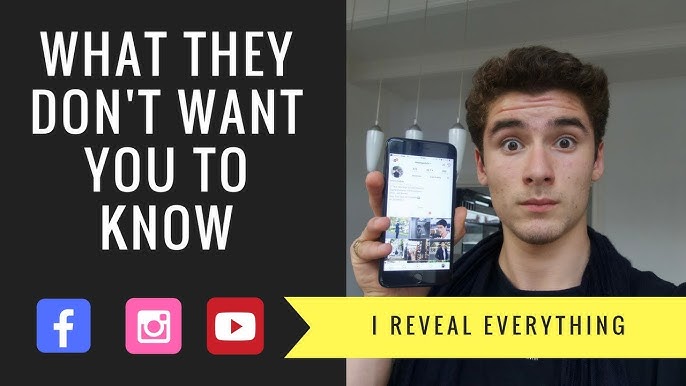
The Truth About Social Media You’re Not Supposed to Know
Josh Shear – You scroll. But behind the casual flick of your thumb lies a system so carefully designed, so intentionally addictive, and so quietly manipulative that most people will never see what’s really happening. This is the truth about social media the one that algorithms, ad revenue, and platform politics don’t want you to notice. And once you do, you can’t unsee it.
Social media isn’t just a place where we connect. It’s a landscape shaped by data, attention, and behavioral engineering. It’s a place where your feed isn’t just showing you what you like it’s subtly steering what you think.
Many users still believe their social media feeds are neutral timelines of content based on who they follow. But the truth about social media is this: nothing in your feed is there by accident. Algorithms decide what you see based on thousands of variables how long you pause on a video, which headlines grab your attention, what kind of posts make you scroll slower or faster.
These systems are not designed to inform or entertain. They are designed to keep you there, on the platform, for as long as possible. More time means more ads. More ads mean more money. That’s the economy of your attention.
And the algorithm learns fast. It doesn’t just respond to what you like it begins predicting what will keep you engaged next, often by amplifying content that provokes emotional responses, especially outrage or tribal identity.
Read More: This Spatial Computing Breakthrough Will Completely Rewire Your Reality
Every move you make online becomes part of a profile. You don’t need to fill out a form saying you’re liberal, anxious, lonely, interested in conspiracy theories, or struggling with confidence the algorithm figures it out.
It knows what time you scroll the most, how you type, which photos you linger on, which links you click but don’t finish. This data forms a digital mirror more honest than you might admit to a friend. And it’s not just used to sell you products. It’s used to keep feeding the machine.
If you’re more likely to click on emotionally charged political content, the system shows you more of that not to inform you, but to activate you. That’s why your feed can become an echo chamber or a battleground depending on what the algorithm thinks will keep you hooked.
The truth about social media isn’t only about what’s pushed to you. It’s about what’s hidden. There are people, ideas, and movements you may never hear about simply because the system didn’t find them “engaging” enough. You don’t just get a customized reality you get a filtered one.
In many cases, what you don’t see is more important than what you do. Unseen news, buried updates, throttled posts. Entire conversations are erased from your view based on what the platform thinks will matter to its goals, not yours.
It’s censorship not by government, but by algorithmic silence.
Social media is now one of the most powerful political tools on Earth and yet, no one elected the people who control it. Platforms can amplify misinformation in one country while silencing dissent in another. They can boost certain movements while de-ranking others. All of this happens behind closed doors, fueled by corporate interest, not public transparency.
During election seasons, this becomes even more dangerous. Platforms are pressured by governments and political actors. Content is “moderated,” but often selectively. Ads are micro-targeted to exploit your fears, beliefs, and browsing habits. You see one version of a campaign, your neighbor sees another. There is no shared reality, only data bubbles.
Once you understand how deeply engineered these platforms are, the question becomes: can we break free?
The answer isn’t to delete everything. Social media isn’t going away. But awareness is power. You can take back control by turning off notifications, unfollowing accounts that trigger more than inform, using browser extensions to hide recommendation sections, and choosing platforms that are built with transparency in mind.
More importantly, spend more time offline. Read slower. Speak to people face-to-face. The more we engage with reality not just digital reactions the harder it is for algorithms to shape us without consent.
The truth about social media is not hidden because it’s hard to find it’s hidden because most people don’t want to know. It’s easier to believe we’re in control. That we choose what we see. That what we feel online is authentic and unfiltered.
But if you made it to this point, you know better. And once you start noticing the patterns, the nudges, the emotional hooks, it’s like seeing behind the curtain.
You are not the user. You are the product. The feed isn’t for your benefit it’s for theirs.
And now that you know that truth, you can decide how much more of yourself you want to give them.
This website uses cookies.